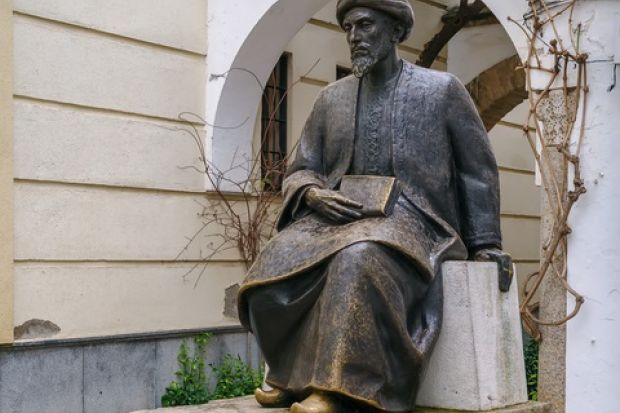There is nothing uniquely Western about humanity’s attempt to understand the world and our place in it. Yet prospective philosophy students comparing university prospectuses will quickly find that the vast majority of Western departments completely ignore the long-standing and esteemed philosophical traditions in China, Japan, India, the Muslim world and Africa.
In 2016, Bryan W. Van Norden and Jay Garfield carried out a survey of philosophy departments throughout the US and were dismayed to find that most focused exclusively on philosophy derived from Europe and the English-speaking world. In the UK, the situation is even worse. Most departments do not offer modules in American philosophy, while even what they describe as “European Philosophy” is much more parochial than the name implies, focusing almost exclusively on thinkers from Ancient Greece, the UK, France and Germany.
If a geography, history or politics department were to offer a similarly narrow syllabus, we would probably think that it was not fit for purpose. The same should be true of philosophy.
Diversification is desirable for a number of reasons. It makes good strategic sense in that it would contribute to some of the more laudable commitments routinely adopted by Western universities, such as to promote diversity and to help students grow into “global citizens”. It makes good societal sense, as it could help to address the high dropout rates of ethnic minority students, which a recent report by the Social Market Foundation blames in part on a “lack of cultural connection to the curriculum”. And, above all, it makes good pedagogical sense, enriching the curriculum with the thought of such luminous figures as China’s Fazang, Ethiopia’s Zera Yacob and the Jewish philosopher Maimonides.
But diversifying the curriculum will not be easy as the roots of philosophy’s parochialism run deep. For example, they run right through the Quality Assurance Agency’s 2015 Subject Benchmark Statement, which sets out expectations for philosophy degrees in the UK. The statement starts well, rightly noting that “philosophy has been practised for thousands of years, and in many different cultures, giving rise to a diversity of traditions”, but the remainder of the document makes no reference to the philosophy of different cultures, and alludes merely to the analytic and continental “traditions”, both of which fall squarely within Western philosophy. We can only hope that the next iteration of the statement abandons this parochialism by including a strong commitment to the inclusion of non-Western voices. Sadly, it is not due to be published until 2022.
However, it should not require a nudge from a quango to prompt philosophers to diversify their courses. The discipline of philosophy has, in fact, shown itself quite capable of effecting positive change through its own initiative. For example, in recent years there have been attempts to diversify the curriculum by including the work of more female philosophers. While there is still progress to be made on this issue, momentum is building.
In the shorter term, Western philosophy academics should read up on how non-specialists can teach various non-Western philosophies (there are many relevant articles in a journal called Teaching Philosophy). This would allow them to start to integrate these ideas into pre-existing modules, not as token curios but as ideas to be taken as seriously as any other. This can easily be done in various areas of philosophy, including ethics, political philosophy, philosophy of mind, metaphysics and philosophy of religion. My own tentative attempts have been well received by students.
In the longer term, departments should look to develop dedicated modules on specific areas of non-Western thought. But having those taught by specialists in Western philosophy like me is very much a second-best solution. A more sustainable and effective way of diversifying the curriculum would be to change hiring practices to seek candidates who can at least teach some form of non-Western philosophy – and, better still, do research on it, too.
Such a change would be easy to make, but would pay dividends in terms of strengthening and enhancing the curriculum, and ensuring that philosophy maintains its relevance in the years ahead.
Lloyd Strickland is a reader in philosophy in the department of history, politics and philosophy at Manchester Metropolitan University.
POSTSCRIPT:
Print headline: One-track minds
Register to continue
Why register?
- Registration is free and only takes a moment
- Once registered, you can read 3 articles a month
- Sign up for our newsletter
Subscribe
Or subscribe for unlimited access to:
- Unlimited access to news, views, insights & reviews
- Digital editions
- Digital access to THE’s university and college rankings analysis
Already registered or a current subscriber?






